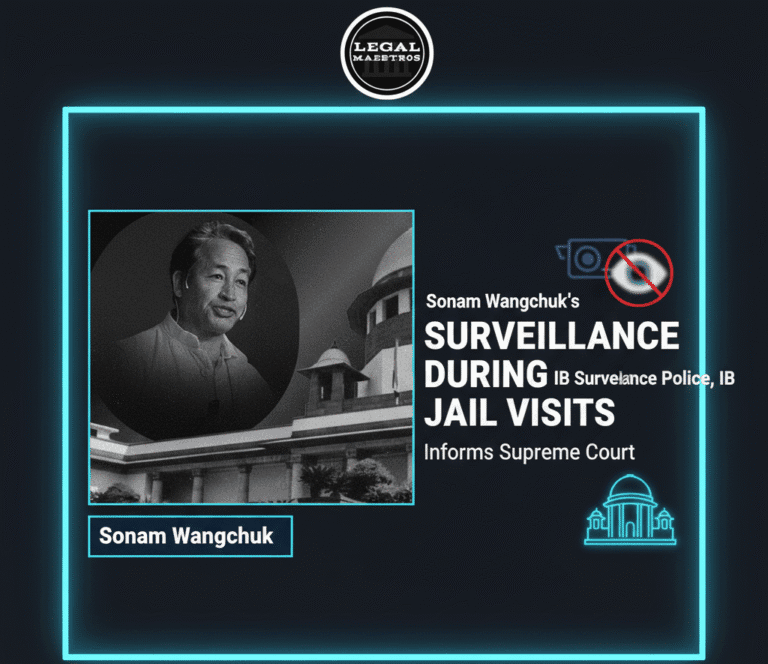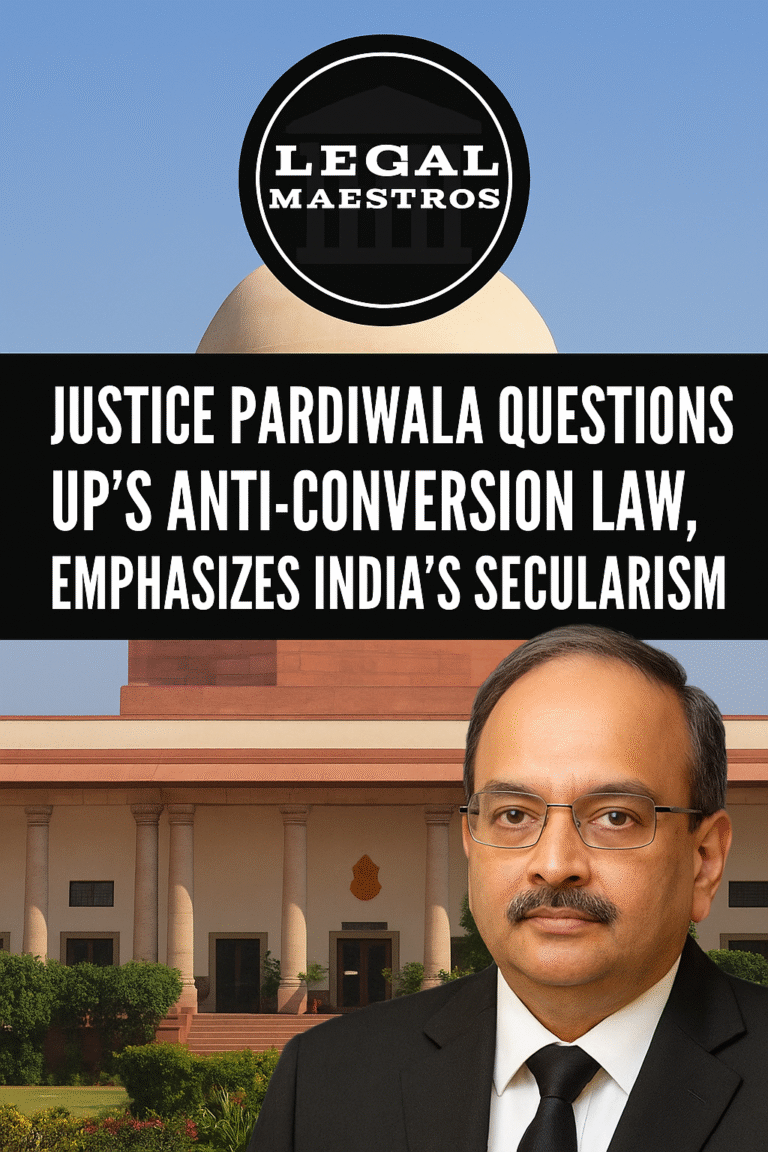Court Reaffirms Inapplicability of Hindu Succession Act to Tribes
The Supreme Court of India has given a reiterant reassertive legal demarcation of laws of inheritance in a major verdict. The Hindu succession act, 1956 (HSA) was recently upheld by a bench consisting of Justice Sanjay Karol who stated that the act was not applicable to the members of the Scheduled Tribes. It is not a new law but a strong affirmation of the current law which emphasizes the special treatment of tribal community under the Indian legal system.
This was observed during the period when the court was listening to a particular property case in Himachal Pradesh. An attempt to advance gender justice, the High Court of the state had already decided in a case that tribal daughters ought to have an opportunity to inherit property under the Hindu Succession Act. The bench, led by Justice Karol, however overturned that order of the High Court on the basis that it was not in line with the law as it was written in the law.
According to the decision made by the Supreme Court, the issues of inheritance and succession among the members of Scheduled Tribe are not subject to the integrated laws of Hindu. They are instead governed by their respective customary laws which are specific and long existing regarding their rights to inheritance. This ruling highlights the legal intricacy in which cultural autonomy of tribes comes into conflict with the quest to have uniform civil rights.
For any queries or to publish an article or post or advertisement on our platform, do call at +91 6377460764 or email us at contact@legalmaestros.com.
This verdict practically shifts the attention back to the particular practices of the concerned tribes. It affirms that a tribal family cannot benefit under the Hindu Succession Act, despite the court being willing to ensure that it is an effort to avert social injustice. The ability to alter this, as observed by the court, rests with the Central Government as opposed to the judiciary.
The Legal Foundation: Section 2(2) of the Act.
The decision of the Supreme Court draws its basis on the stark and the explicit wording of the Hindu Succession Act itself. In section 2(2) of the 1956 Act, there is a certain exception. According to it, the Act will not in any other way apply to the members of any Scheduled Tribe, as defined in the Constitution. The legal separation is founded on this exemption.
The law was initially enacted with this provision in mind by the Parliament. The political purpose was to safeguard the cultural identities and self-governing social institutions of the various tribal groups in India. It was acknowledged that the communities had their own ancient traditions of dealing with property and family issues that were totally contrary to mainstream Hindu practices.
For any queries or to publish an article or post or advertisement on our platform, do call at +91 6377460764 or email us at contact@legalmaestros.com.
Nonetheless, the identical provision offers a certain change mechanism. According to it, the Act is applicable to Scheduled Tribes in case the Central Government makes a formal notification to the same in the Official Gazette. No such blanket notification has yet been given by Justice Karol, as his bench pointed out, and as a consequence, this does not defeat the default exemption.
Thus, the statute keeps the hands of the court tied. In her 2015 order, the Himachal Pradesh High Court had attempted to extend the Act to stop the discrimination against tribal women. The Supreme Court decided that this was a judicial overreach because the High Court could not override an express exemption enacted by the Parliament.
Governed by Custom: A Double-Eedged Sword
Since the Hindu Succession Act has been established not to be applicable, the inheritance right of tribal people is thus controlled solely based on their corresponding customary laws. These are the tacit, conventional rules and practices that have been practiced by a certain tribe over time. To the law, such customs can be taken as the legal authority of such a community.
For any queries or to publish an article or post or advertisement on our platform, do call at +91 6377460764 or email us at contact@legalmaestros.com.
This implies that there exists no one, single law of succession to all the Scheduled Tribes. A practice is probably applicable to Santhal tribe which is entirely different to the practice of Gond or Khasi tribes. In the event of a legal dispute over a piece of property, the court must first find out and authenticate the applicable custom of the family to which it concerns, which may be a difficult and evidence-based undertaking.
This statutory system is aimed at enforcing the constitutional safeguard of tribal independence especially in the Fifth and the Sixth Schedule. These adoptions are meant to maintain the control of the tribe and ensure that their individual social structure is not washed away by the introduction of mainstream legislations. It does not interfere with their right to their own affairs as per their traditions.
Nonetheless, there is a very dark aspect of this custom dependency especially when it comes to women. A lot of these conventional laws have their basis in patriarchal systems. They usually also give the heirs who are male only right of inheritance and this excludes female heirs and widows totally out of inheritance of land and other family property. This leaves a wide disparity of gender justice to tribal women.
For any queries or to publish an article or post or advertisement on our platform, do call at +91 6377460764 or email us at contact@legalmaestros.com.
The Pervasive Conflict with Gender Equality
The inapplicability of Hindu Succession Act is a sharp contrast to the equality provision of the constitution. One of the main successes of Hindu Succession Act was the giving of Hindu daughters the same rights as sons in ancestral property particularly following the amendment of the act in 2005. The tribal women are not entitled to these automatic protections since the Act does not apply to Scheduled Tribes.
This is the focal point of dilemma which the Himachal Pradesh High Court had tried to resolve. It witnessed a vivid instance of social injustice that was leaving tribal women penniless as customs deprived them of their portion of the family property. The solution of the High Court was to simply use a more progressive Hindu Succession Act but the Supreme Court declared that this was legally unacceptable.
The Supreme Court is not a stranger to this problem. This was the issue that was grappled with in landmark case of Madhu Kishwar vs. State of Bihar in 1996. It realized the discrimination by the tribe practices that displaced women. Striking down these practices was also unwelcome by the then court, however, as it believed it would lead to a huge social upheaval, in addition to weakening tribal identity.
For any queries or to publish an article or post or advertisement on our platform, do call at +91 6377460764 or email us at contact@legalmaestros.com.
The Supreme Court has indicated a change in judgments that are more recent. In July 2025 case, again having Justice Sanjay Karol, the bench decided that in a case where the custom is not demonstrated or silent the principle of justice, equity, and good conscience ought to take effect. Subsequently, the court gave one of the tribal women exactly the same share of property and said that a custom could not be employed to sustain discrimination that could not be found in the Constitution.




